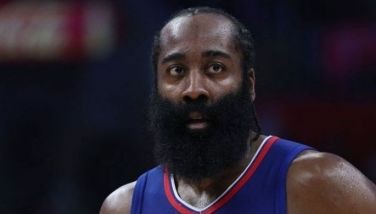Travails of boxing

Heartbreaks are a part of Olympic history. With every triumph, there is defeat. Since the Philippines began its Olympic odyssey 100 years ago, there have been several close calls where athletes came a whiff away from bagging a medal. In boxing, the list is painful. Lightweight Jose Padilla (1936), welterweight Simplicio de Castro (1936), lightweight Rodolfo Arpon (1964), bantamweight Reynaldo Fortaleza (1976), lightweight Leopoldo Cantancio (1984), bantamweight Roberto Jalnaiz (1992), lightweight Ronald Chavez (1992) and flyweight Elias Recaido (1996) made it to the quarters and were a win away from barging into the semis but failed to advance. In the Paris Games, add featherweight Carlo Paalam to the cast.
Paalam, 26, was a win short of claiming a guaranteed bronze and lost a close 3-2 split decision to Australia’s Charlie Senior in the quarters. Paalam had a narrow lead at the end of the first round then Senior leveled it to turn the third frame into a make-or-break decider. Paalam, who was masterful in conquering Ireland’s Jude Gallagher in the Round of 16, strayed away from his fight plan of boxing skillfully and instead, tried to slug his way to a win. Senior slipped and slid to make Paalam miss then landed shots as the Tokyo Olympic flyweight silver medalist teetered off balance.
Paalam was the more aggressive fighter throughout but Senior, whose tactic of raising his right arm repeatedly to influence judges into scoring his connections was a distraction, controlled the space in the ring to make a strong case for the win. It could’ve gone either way but it appeared three of the five judges were swayed by Senior’s control from a distance. Paalam said his dream to strike Olympic gold isn’t over and the LA Games is only four years away when he’ll be 30.
Lightheavyweight Eumir Marcial’s exit was a disappointment. His Paris campaign was one and done. Marcial lost a unanimous decision to Uzbek Turabek Khabibullaev, a former world youth champion making his Olympic debut at 20. There were several possible reasons why Marcial didn’t perform as expected. First, he fought out of his natural weight class. Marcial claimed a bronze at 75kg in Tokyo but when the division was scrapped for Paris, he had to move up to 80kg. Second, his training wasn’t consistently with his Paris coaches. Marcial trained in Las Vegas with a different coaching team. Third, he lacked foot movement which was necessary to create angles against a taller and rangier opponent. ABAP chairman Ricky Vargas confirmed Marcial suffered a rib injury while sparring with a Cuban in camp in Germany two weeks before and while it wasn’t a fracture, his training regimen was hampered. Fourth, his instincts as a pro took away from what he had to do to win an Olympic-style fight. Fifth, he went for the homerun from the onset, looking for one big shot to end it. Sixth, he battled Turabek straight up, a recipe for disaster against a fighter whose advantage was distance. And seventh, he failed to cut the ring off from the quick-stepping Uzbek. If the fight were scheduled for four rounds instead of three, Marcial could’ve turned it around like he did in his second pro bout against Isiah Hart when he survived three trips to the canvas to score a stoppage at 2:13 of the final frame.
Marcial, 28, will now focus on his pro career. He’ll find his natural weight and fight the way he wants to. Marcial’s power is overwhelming and that’s what he’ll bring to the table in resuming his pro journey where his record is 5-0, with three KOs.
- Latest
- Trending






























